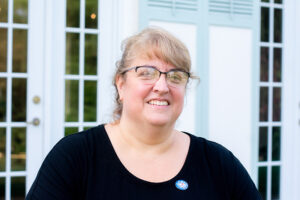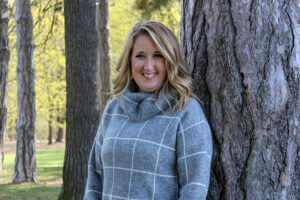By Deborah Jeanne Sergeant
The pandemic exacerbated the longstanding shortage of bedside nurses. Tougher conditions, supply scarcity, employee illnesses and many sicker patients prompted many hospital nurses to quit the profession or move into a non-hospital role in nursing.
In addition, waves of retiring nurses have also affected the number of hospital nurses, meaning both that fewer nurses are in hospitals and also that as these individuals age, like their contemporaries, they will need more healthcare.
Deb Palmeri, clinical service manager at Visiting Nursing Association of WNY in Cheektowaga, has noticed that patients receive shorter care and upon discharge, less education.
“They don’t know about their healthcare needs, like ostomy care,” she said. “They’re not getting the education on their disease processes as much anymore. Our patients are coming home pretty sick.”
She thinks this points to the nursing shortage causing truncated care by necessity.

To properly care for patients, many hospitals temporarily reduced capacity or paused services. Some are still not operating at full capacity, as that would place the patient-to-nurse ratio at unsafe levels. Some also use agencies dispatching travel nurses, which seems a bit like a shell game to Martha Kershaw, who holds a doctorate in education, and is a registered nurse and associate professor of nursing with Daemen University in Amherst. When nurses shift from hospital systems to traveler positions with agencies, they may make four to five times their previous salary.
But the additional cost to hospitals and increased retention “has caused in some places, the number of travelers to decrease,” Kershaw said.
One of the barriers to placing more nurses within the healthcare system is a lack of slots for nurses’ clinical hours. Kershaw said that during the pandemic, many organizations did not want additional new people within their facilities. But the school’s new acute care program has helped develop nurses in high demand and since the pandemic restrictions have lifted, “they’re definitely looking for students to come in,” she said.
A lack of nurses at long-term care facilities further worsens the nursing shortage problem at hospitals, as sick people who need short-term rehabilitation or long-term care have no place to go and must therefore stay at the hospital longer, filling beds needed by still sicker people.
The enrollment rates at many schools have decreased as coverage of the nursing shortage has made more people aware of the challenges of nursing.
“Some of the aspects of COVID-19 could have steered people away from nursing because of the fear of the unknown and the quick transition of maintaining home life and work when COVID-19 came,” said Jacob Fisher, Fisher, who holds a Ph.D., is a master’s trained nurse, and works as assistant dean of nursing and faculty with Trocaire College in Buffalo. “People know about the emotional-mental piece of nursing during COVID-19 and working short- staffed. These also played a big role.”
He hopes that continuing to develop relationships with healthcare organizations can help them cultivate long-term employees. He also suggests that summer internships and other experiences can bring potential nursing students to organizations to learn what nursing is all about.
“Today, part of that relationship- building is what will be the best for the employees,” Fisher said. “It’s a fit with outside life. Some organizations offer sign-on bonuses and agreements where they don’t have to work weekends or holidays. Healthcare has to be modifiable with current times and is equitable for everyone. We have to figure out needs of the employees.
“Helping bolster the student experience early on can help with the shortage.”

Jennifer Schwytzer, nationally licensed master social worker and owner of KINDfulness Coaching, has recognized that part of this concept relates to the emotional makeup of nurses. Drawn to the profession by their sense of empathy, “nurses are more prone to compassion fatigue and burnout with exposure to trauma, high mortality rates, staff shortages and long hours,” she said.
Schwytzer serves clients throughout Western New York and specializes in mental health and self-care among healthcare workers.
The fast-paced world of hospital nursing leaves little time to process stress and trauma during the workday and little energy to do so afterwards. Schwytzer said that this can lead to burnout without nurses even knowing what happened.
She added that many members of the Millennial age group values work/life balance more than previous generations, which can lead to disillusionment with the nursing career during a time of high demand such as during the pandemic.
“The COVID-19 era has accelerated nursing shortages, which for those that stay as nurses means they may have more patients, less help, more hours or overtime and high levels of stress,” Schwytzer said. “This screams burnout.”
She encourages healthcare workers to fight burnout.
• “Identifying your feelings and thoughts early on can help to put a halt to burnout symptoms. A common framework that therapists or coaches may use teaches you that your circumstances don’t change, but the way you frame your thoughts and feelings can significantly impact your actions and behaviors. Getting a handle on how you think and view your environment can significantly impact the job you do.
• “Learning to set healthy boundaries, knowing what you are willing to do and not willing to do also helps. Sometimes saying no can be so important, especially in the nursing profession: ‘No, I can’t take an extra shift; I know I need a break today.’ Keeping boundaries and respecting others’ boundaries fits into this suggestion as well.
• “Try to learn not to take things so seriously. Everything is not about us. Recognize that you can provide support and assistance without taking on someone else’s trauma or problem. It is not always up to you to solve or fix. That may be out of our control and recognizing what is in and out of our control is key.
• “Believe that others can save themselves. We cannot fix or heal someone that does not want to be healed and sometimes this is a really hard concept to allow in.
• “Self-care is so easy, yet we have such a hard time doing it because there just isn’t enough time or energy. Everyone has the same 24 hours in the day; you can take care of you. It’s a choice you make and if you need help figuring out how to integrate the things you love and enjoy into your day, ask for help. It’s crucial to eliminating burnout from your life and job.”

